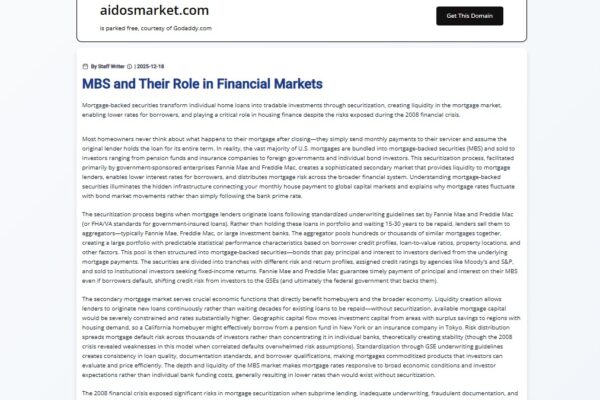SpencerPreston.com Scam -An Unregistered Investment Scheme
The Two Faces of a Name: Why SpencerPreston.com is a Critical Investment Risk
In the landscape of digital finance, fraudsters constantly innovate, but their core tactics remain the same: leverage the credibility of others and bypass regulatory oversight. The platform operating under the domain spencerpreston.com presents a perfect case study in both strategic name appropriation and clear regulatory non-compliance. While “Spencer Preston” is an individual name associated with legitimate professional activities, the website using this domain for investment solicitation has attracted a critical official warning. This comprehensive, 1300-word review delves into the structural deficiencies and official alerts surrounding this platform, exposing why any capital deposited here is placed under severe, unnecessary risk.
The Critical, Definitive Warning from Regulators
The single most conclusive piece of evidence against the legitimacy of spencerpreston.com comes directly from a governmental financial body: the Autorité des marchés financiers (AMF) in Québec, Canada. This regulator has publicly issued a warning, explicitly stating that spencerpreston.com is not registered with the AMF and is not authorized to solicit investors within its jurisdiction.
This is not a mere complaint; it is an official declaration that the platform is operating illegally in a regulated financial market. For investors, this warning is a non-negotiable red flag. It signifies that the platform:
- Lacks Legal Authority: It has not obtained the necessary license to deal in securities or investments, meaning it does not comply with the stringent laws designed to protect client capital.
- Operates Outside the Law: Any transactions facilitated by spencerpreston.com in that region are conducted outside the regulatory safety net, leaving clients with virtually zero recourse in case of a dispute or loss.
- Fails Due Diligence: The platform’s failure to register and its subsequent listing on a regulatory warning list demonstrate a complete disregard for the ethical and legal standards required of any genuine investment firm.
The existence of an official warning from a top-tier financial regulator effectively renders the platform an unacceptable financial partner.
The Deception of Duplication: Leveraging Legitimacy
A key component of the spencerpreston.com risk profile is its strategic use of a common name. Search results confirm the existence of a highly-rated, legitimate real estate agent named Spencer Preston, as well as several legitimate companies with similar names operating in the real estate sector globally. This creates a powerful, yet false, sense of security.
This tactic, often referred to as identity theft or reputational cloning, aims to confuse the public. A potential victim may perform a quick online search, find positive reviews for the real estate agent or another similarly named legitimate company, and mistakenly believe the positive sentiment applies to the spencerpreston.com investment platform. The confusion is entirely intentional; it allows the investment scam to benefit from the trust earned by unrelated, honest professionals. This act of deception is the first line of defense the scammers employ to discourage deeper, skeptical investigation.
The Unrealistic Lure: Guaranteed Riches and Exclusivity
Like all fraudulent investment schemes operating without regulatory constraints, spencerpreston.com must offer an aggressively compelling reason to entice investors away from regulated brokers. This is universally achieved through the promise of unrealistic, market-defying profits and a cultivated air of exclusivity.
The sales pitch typically involves:
- Guaranteed Returns: Offering high, fixed, or consistently predictable returns that are impossible to achieve in volatile, legitimate markets.
- Proprietary Software: Claiming access to secret trading algorithms, AI, or “black box” technology that eliminates risk and guarantees success.
- Hard-to-Access Assets: Pushing investments into specialized, illiquid, or exotic assets (like little-known cryptos or raw materials) where prices can be easily fabricated without outside verification.
The underlying psychological mechanism is the activation of the investor’s desire for easy, rapid wealth. The smooth-talking, assigned “account manager” ensures that this desire eclipses any rational assessment of risk, pushing the client to deposit increasingly large sums based on emotional excitement rather than financial prudence.
Fabricated Success: The Phony Dashboard and Phantom Profits
The true operational nature of spencerpreston.com becomes apparent once the first deposit is made. The client is given access to an online dashboard—a sleek, professional, and entirely deceptive interface.
The funds deposited are not used for real trading. They are, in fact, immediately diverted into accounts controlled by the scam operators. The dashboard, therefore, is nothing more than a highly sophisticated video game. The numbers, the rising balance, and the winning trade history are fabricated data designed solely to create a compelling illusion. The system ensures the client sees only what maximizes the potential for reinvestment: a consistently positive, rapidly escalating account balance. This continuous feedback loop of phantom profits is crucial, as it builds immense confidence, leading the investor to pour their life savings, and sometimes even borrowed money, into the platform.
The Final Wall: Withdrawal Fees and Extortion
The point of withdrawal is the moment the spencerpreston.com facade shatters. When an investor attempts to retrieve their substantial “profits,” the request is never processed smoothly. Instead, the platform or the account manager introduces a new, hostile reality: a series of unexpected, manufactured financial demands.
These fees are not genuine business expenses; they are a final, desperate attempt at extortion:
- The Upfront Tax Demand: A claim that a large percentage of the profits (or even the principal) is legally subject to an “exit tax,” “profit tax,” or “regulatory fee” that must be paid separately and immediately before the funds can be released.
- AML/Compliance Charges: Requests for “anti-money laundering insurance” or a “withdrawal bond” to satisfy fictional regulatory requirements.
- The Liquidity Barrier: Fabricated charges to cover the supposed cost of converting or transferring the large sum of money.
Critically, paying these fees will never result in the release of the funds. The money is lost the moment it is deposited. The requested fees are merely additional losses incurred by the victim in a futile attempt to comply with the scammer’s demands.
Conclusion: Regulatory Caution is the Only Path
The investigation into spencerpreston.com uncovers a textbook example of investment fraud: an unregistered operation leveraging a respected name, promising unrealistic returns, and backed by a clear, official warning from a major financial regulator. The combination of deceitful identity, manipulative sales tactics, fabricated profits, and the final barrier of withdrawal fees confirms its malicious nature. The financial world offers many legitimate opportunities, but they are invariably found within the confines of established, regulated bodies. For the sake of financial security, the warning against spencerpreston.com must be heeded without hesitation.
Report SpencerPreston.com Scam and Recover Your Funds
If you have lost money to SpencerPreston.com Scam, it’s important to take action immediately. Report the scam to Jayen-consulting.com, a trusted platform that assists victims in recovering their stolen funds. The sooner you act, the better your chances of reclaiming your money and holding these fraudsters accountable.
Scam brokers like SpencerPreston.com continue to target unsuspecting investors. Stay informed, avoid unregulated platforms, and report scams to protect yourself and others from financial fraud.
Stay smart. Stay safe.






